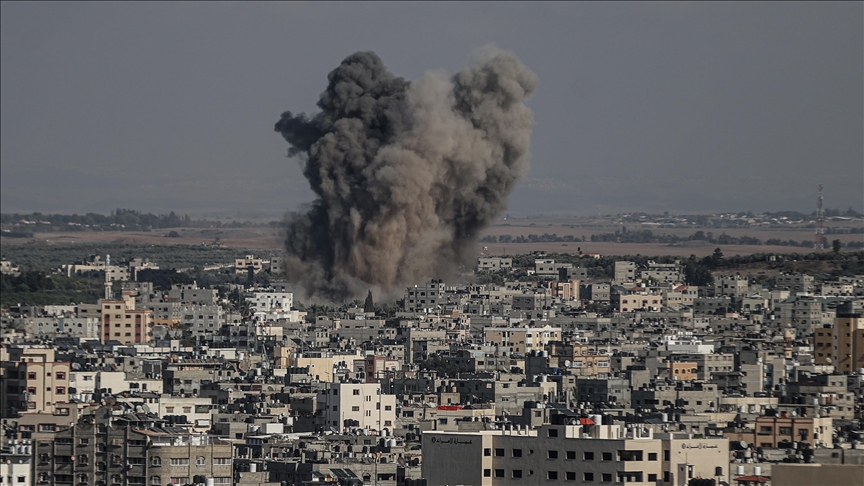In a historic invocation of Article 99, UN Secretary-General Antonio Guterres has urged the UNSC to take urgent action and call for a human ceasefire in Gaza. Article 99 allows the Secretary-General to bring to the Security Council’s attention any pressing international security issue.
With an intensifying Israeli offensive and escalating civilian casualties, U.N. Secretary-General Antonio Guterres invoked a rarely exercised power this week to warn the Security Council of an impending “humanitarian catastrophe” in Gaza. He urged members to demand an immediate humanitarian cease-fire.
Article 99 of the U.N. Charter is a provision of the United Nations Constitution. It states that the secretary-general — the U.N.’s top diplomat — may bring to the attention of the Security Council “any matter which, in his opinion, may threaten the maintenance of international peace and security.”
It was last used over half a century ago — which says the secretary-general may inform the council of matters he believes threaten international peace and security. This gives an important additional power to the secretary-general, since the real power at the U.N. is held by its 193 member nations and especially the 15 countries that serve on the Security Council.
Taking to X (formerly Twitter) Guterres shared a letter addressed to the UN Security Council and wrote, “I’ve just invoked Art. 99 of the UN Charter – for the 1st time in my tenure as Secretary-General. Facing a severe risk of collapse of the humanitarian system in Gaza, I urge the Council to help avert a humanitarian catastrophe and appeal for a humanitarian ceasefire to be declared.”
Article 99 of the UN Charter grants the Secretary-General the authority to bring to the Security Council’s attention any matter that, in his judgment, poses a threat to international peace and security.
 This unprecedented move comes after the Security Council’s delay in adopting a resolution supporting a ceasefire. In the letter, Guterres conveyed the grim reality of more than eight weeks of conflict, emphasizing the “appalling human suffering, physical destruction, and collective trauma across Israel and the Occupied Palestinian Territory.”
This unprecedented move comes after the Security Council’s delay in adopting a resolution supporting a ceasefire. In the letter, Guterres conveyed the grim reality of more than eight weeks of conflict, emphasizing the “appalling human suffering, physical destruction, and collective trauma across Israel and the Occupied Palestinian Territory.”
The Secretary General further emphasized the devastating toll of the military operation, revealing that over 15,000 people, with over 40% being children, had lost their lives. Thousands were injured, more than half of all homes were destroyed, and 80% of the 2.2 million population of what??? were forcibly displaced into increasingly confined areas.
In his letter, Guterres also painted a dire picture of the healthcare system in Gaza, which is on the brink of collapse, with hospitals transformed into battlegrounds. He warned that with constant bombardment and a lack of shelter and essentials for survival, the breakdown of public order in Gaza was imminent.
Guterres believes that the humanitarian system and the humanitarian operations in Gaza are collapsing. He also warns in his letter that in the current situation, “amid constant bombardment by the Israeli Defense Forces and without shelter or essentials to survive, I expect public order to completely break down soon due to the desperate conditions, rendering even limited humanitarian assistance impossible.”
Guterres concluded the letter by stating that the international community has a responsibility to use all its influence to prevent further escalation and end this crisis. He urged the Security Council to take decisive action to avert an impending humanitarian catastrophe.
The United States on Friday, December 8th, 2023 vetoed a proposed United Nations Security Council demand for an immediate humanitarian ceasefire in the war between Israel and Palestinian militant group Hamas in Gaza, diplomatically isolating Washington as it shields its ally.
Thirteen other members voted in favor of a brief draft resolution, put forward by the United Arab Emirates, while Britain abstained. The vote came after U.N. Secretary-General Antonio Guterres made the rare move to formally warn the 15-member council of a global threat from the two-month long war.
“What is the message we are sending Palestinians if we cannot unite behind a call to halt the relentless bombardment of Gaza?” Deputy UAE U.N. Ambassador Mohamed Abushahab asked the council. “Indeed, what is the message we are sending civilians across the world who may find themselves in similar situations?”
The United States and Israel oppose a ceasefire because they believe it would only benefit Hamas. Washington instead supports pauses in fighting to protect civilians and allow the release of hostages taken by Hamas in a deadly Oct. 7 attack on Israel.
Deputy U.S. Ambassador to the U.N. Robert Wood told the Security Council that the draft resolution was a rushed, imbalanced text “that was divorced from reality, that would not move the needle forward on the ground in any concrete way. We do not support this resolution’s call for an unsustainable ceasefire that will only plant the seeds for the next war.”
